
PM Deuba calls for commitment and activism from all to combat corruption
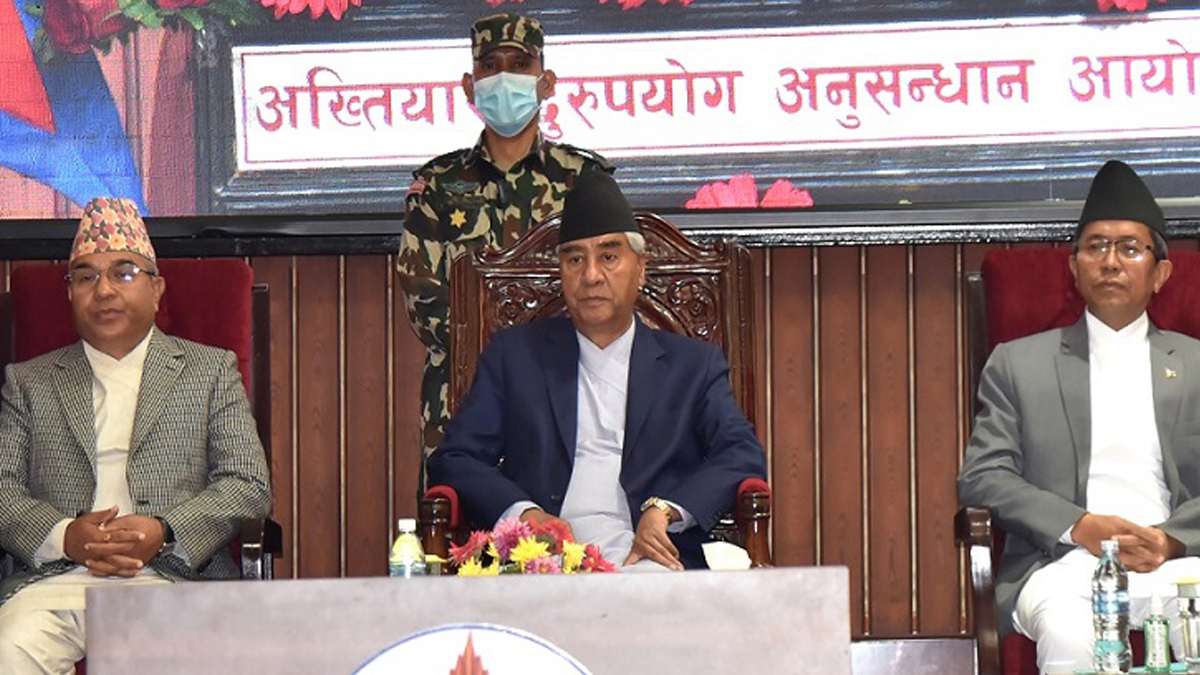
Prime Minister Sher Bahadur Deuba asserted that the anti-corruption campaign needed commitments and activism from all mechanisms of State, courts, civil societies and media.
Calling for commitment and activism from one and all to eradicate corruption, Prime Minister Deuba argued, “Corruption prevention is neither a responsibility of any State organ or agency nor is it a battle to be won by the activism of any State organ alone.”
The Prime Minister said so in a programme organized by the Commission for the Investigation of Abuse of Authority (CIAA) on the occasion of the International Anti-Corruption Day here today.
Stating that corruption had multifaceted forms, causes and effects and controlling it was becoming challenging day by day, he spoke of the need to ensure public service delivery on par with the expectations of the general public by taking forward anti-corruption activism through coordinated efforts.
Furthermore, he observed that the need of the hour was to ensure a sense of good governance among people for which he underscored the timely completion of the development works and making the public service delivery effective and swift.
The Head of the Government urged, “On the occasion, I appeal to one and all for the strict implementation of the zero-tolerance against corruption policy in all mechanisms and layers of the State.”
December 9 is observed annually across the world as International Anti-Corruption Day in commemoration of the endorsement of the United Nations Conventions against Corruption.
Stating that today was also a day to reaffirm commitment and express solidarity with the international commitment against corruption, Deuba emphasized commitment towards strictly eradicating corruption and thereby building a clean, healthy, moral and developed society.
“May this day encourage and inspire one to control corruption that has remained an ignominy of society and to remain aloof from such activities and to raise voices against corruption,” he expressed his wish.
According to him, the government of Nepal was always fully committed towards international obligations against corruption control and pointed out the need for national action-plan in all three-tier government in Nepal for implementation of United Nations Conventions against Corruption.
“Corruption has its implications in public service delivery, development management and in all dimensions of social life,” the Prime Minister said who also insisted on the need of defeating the psychology of corruption. “Not only the present generation but also the future generation will suffer consequences of corruption and a prompt and a regular campaign against is highly required.”
The Prime Minister went on to say that corrupt people and the community could never walk free from the eyes of the law and each citizen should be informed about this fact so that they could warn people in the public posts against it and contribute to discouraging it in public organisations.
The Prime Minister praised the CIAA and congratulated it for its investigation and actions against corruption and efforts to increase public awareness against it. He asserted that the CIAA should ensure that it would reach all indulged in corruption no matter whoever the person is.
On the occasion, the Prime Minister was of the view of promoting societal good practices founded on the principles of good conduct and moral values to prevent corruption and thus gearing up for building a prosperous and civilized Nepal. He was of the opinion of learning, internalizing, practicing and promoting good conduct within the family to see political, economic, social, material, and psychological transformations in society as a whole.
The Prime Minister called one and all to participate in the campaign to institutionalize good governance at State levels by eliminating the attitude of corruption tolerance, acceptance, normalization and neutrality against it.
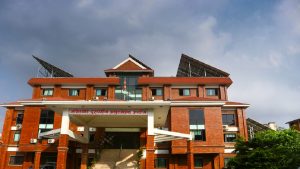
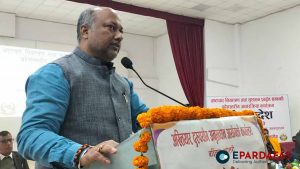
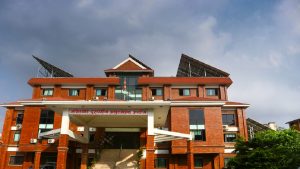
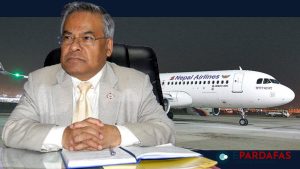
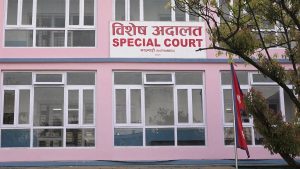
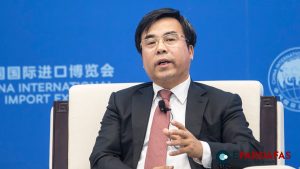



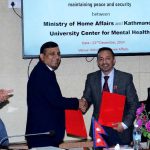


Comments